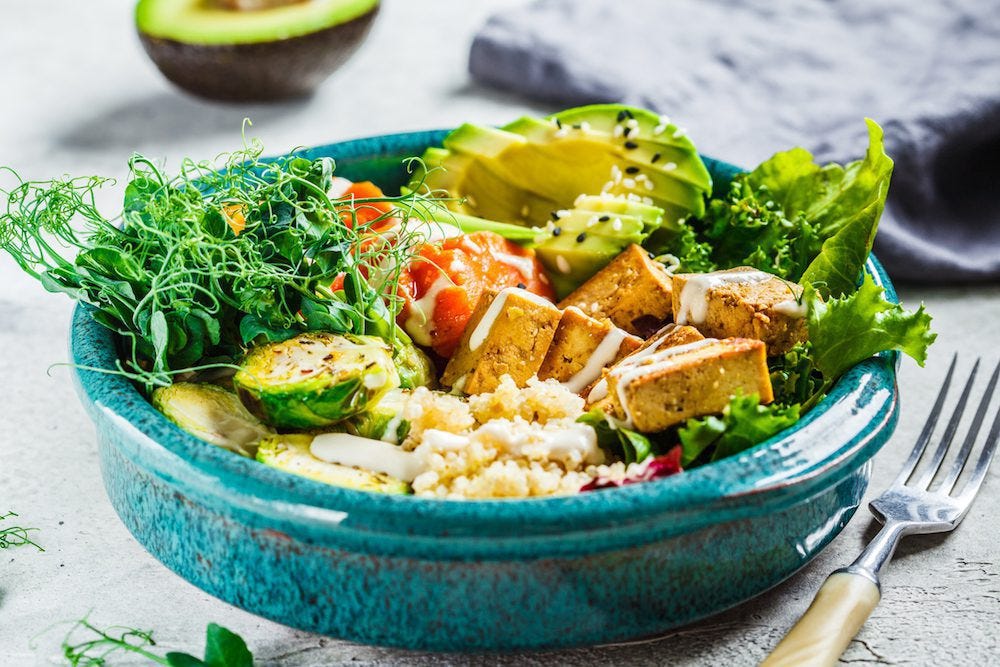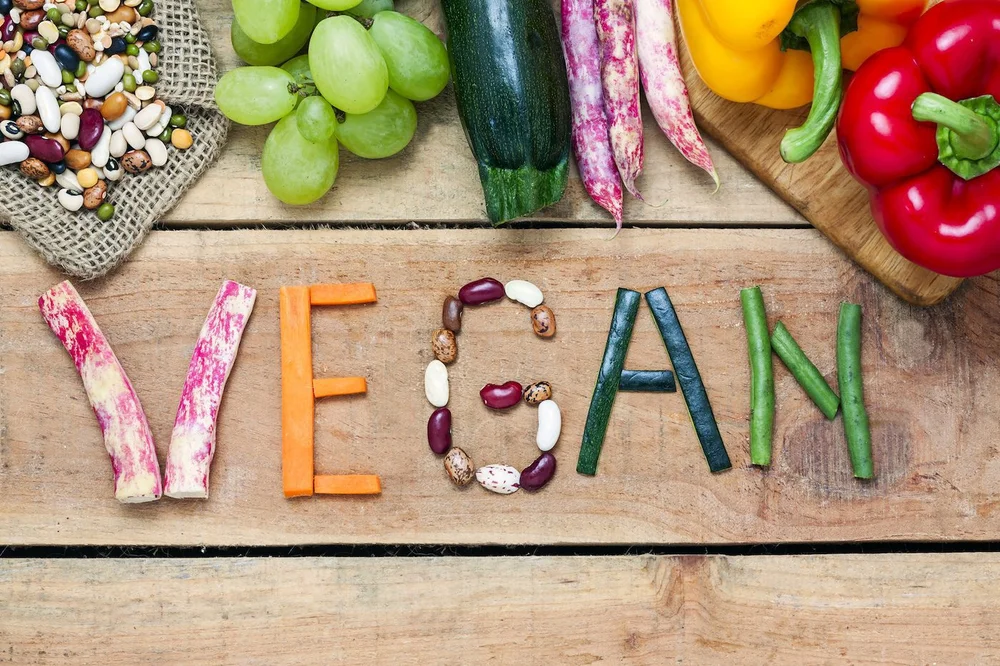8 Ideal Protein Sources for Vegans
Many people think that when you don’t eat meat, your protein options are too limited for such a diet to be healthy. If you’re vegan, you know this isn’t the case.
There are lots of plant-based protein options, from chickpeas to beans and more. But what about when you need more variety?
Why Is Protein Important?
While it’s often associated with strengthening muscles, protein is also the building block for all our body’s tissues.
Protein is one of the body’s fuel sources. It’s also one of the three macronutrients (carbohydrates and fats being the other two). Proteins act as enzymes in digestion where they help break down food to be utilized by the body.
Because vegans don’t consume animal products, they’re at risk for deficiency of vitamin B12, a nutrient that’s important for proper red blood cell formation. It’s important to be intentional about getting enough B12 in other forms, otherwise, your energy levels can be negatively affected.
Protein is an important component of a balanced meal. It takes longer to digest than carbohydrates. Pairing carbohydrates with protein can make you feel full longer.
How Much Protein Do Vegans Need?
In general, someone following a vegan diet doesn’t need more protein than someone following any other diet.
The general guidelines for protein are 0.8-1.0 grams per kilogram of body weight. For someone who weighs 150 lbs. (68.2 kg), that would be 55-68 grams of protein per day. For reference, 1 cup of boiled lentils has about 18 grams of protein.
Another guideline for determining protein needs is to have 10-35% of your daily caloric intake come from protein sources. This metric is easier to use if you track your macros on an app like MyFitnessPal.
If you need some ideas for how to get enough protein into your diet as a vegan, here are some of the most nutritious options available.
8 of the Best Clean & Lean Protein Sources for Vegans

- Quinoa
Quinoa is a seed that’s often prepared like a grain. It’s considered a great source of protein, with about 8 grams per serving.
It also has lots of fiber at about 5 grams per serving. Quinoa is naturally free of gluten, is easy to prepare (it’s made just like rice), and can go with just about any meal. Try it in salads or as a side dish.
- Chia Seeds
Just two tablespoons of chia seeds contain 4 grams of protein. These tiny seeds are often called a superfood due to their many health benefits and versatility. They can be added to healthy baked goods, oatmeal, smoothies, or made into a pudding.
- Chickpeas
Chickpeas have a whopping 39 grams of protein in one cup! They can be prepared in a variety of ways, including roasted and boiled.
They can be added to soups, salads, or eaten as a snack (roasted chickpeas are delicious). Chickpeas are an ideal snack since they’re high in fiber and have lots of vitamins and minerals.
- OMNI Protein
BrainMD’s OMNI Protein powder incorporates some of the above sources of protein and combines them into an easy-to-use product. OMNI Protein contains quinoa protein and chia protein. These powders are packed with excellent, plant-based proteins.
OMNI Protein features pea protein and rice protein, two other excellent plant-based protein sources. It offers 22 grams of protein per serving. This protein powder can be added to smoothies or mixed with plant-based milk or water.
- Tempeh
Tempeh is made from soy and is usually sold in a loaf-type form, like tofu. Unlike tofu, tempeh has a coarser texture and is higher in protein and fiber.
Tempeh has 31 grams of protein per cup. It can be cooked and added to salads, stir fry, sandwiches, and more. It’s often seasoned or marinated and is a solid protein option.
- Lentils
Lentils are an affordable source of plant-based protein. They’re easy to find and convenient to store since they keep for long periods of time.
They can be added to soups, tossed into salads, sprouted and enjoyed on sandwiches, or added to pasta sauce for extra nutrition. Lentils have 18 grams of protein per cup.
- Hemp Hearts
Hemp hearts have nearly 10 grams of protein in just 3 tablespoons. They’re a complete protein, meaning they have all nine essential amino acids. Essential amino acids are those that the body cannot synthesize on its own, so they must be obtained through the diet.
Hemp hearts are one plant-based way to get these important compounds. These tiny nutrition powerhouses can be added to smoothies, yogurt, granola, and more. You also can use hemp milk, which has a similar nutrition profile to hemp hearts.
- Rice and Beans
Rice and beans are inexpensive and easy to store. They keep for long periods of time and are shelf-stable.
Together, they contain all nine essential amino acids and create an ideal source of protein if you don’t consume meat. Two cups of rice and beans contain about 14 grams of protein. This will vary slightly depending on the type of rice and the variety of bean, but regardless, you can use the kinds you prefer and create a healthy, balanced source of protein.
Final Thoughts
It’s important to get sufficient protein each day. Protein is vital for many functions in the body. However, many people think there’s a scarcity of plant-based protein options.
The truth is much to the contrary. There are plenty of excellent, plant-based protein sources to pick from, and a wide variety of preparation methods, too.
By now you can be confident that when you’re not eating meat, there are more than enough ways for you to lead a healthy, balanced lifestyle.
At BrainMD, we’re dedicated to providing the highest purity nutrients to improve your physical health and overall well-being. For more information about our full list of brain healthy supplements, please visit us at BrainMD.
- Good vs. Bad Carbs: How to Create a Balanced Diet with Healthy Carbs! - January 27, 2022
- How to Make Homemade Salad Dressings + Recipes! - August 28, 2021
- How to Ditch Diet Culture & Improve Your Relationship with Food - August 25, 2021



